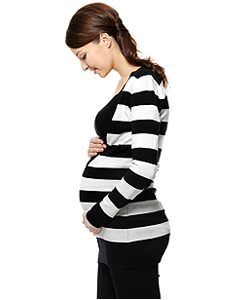Health and Nutrition Information for Pregnant and Breastfeeding Women
Nutritional Needs During Pregnancy
When you are pregnant, you have a higher need for some vitamins and minerals. Follow your Daily Food Plan for Moms to meet most of these increased needs.
In each food group, choose foods that have the vitamins and minerals you need for a healthy pregnancy. Learn more about choices to make from each food group to provide the vitamins and minerals you and your baby need.
Also make choices that are low in "empty calories." Empty calories are the calories from added sugars and solid fats in foods like soft drinks, desserts, fried foods, cheese, whole milk, and fatty meats. Look for choices that are low-fat, fat-free, unsweetened, or with no added-sugars. They have fewer or no "empty calories."

Vitamin and mineral supplements cannot replace a healthy diet. Most doctors recommend that pregnant women take a prenatal vitamin and mineral supplement every day in addition to eating a healthy diet. Taking a supplement ensures that you and your baby get enough important nutrients like folic acid and iron. But don't overdo it. Taking extra can be harmful for you and your baby.
Pregnant women and women who may become pregnant should not drink alcohol. Drinks containing alcohol include beer, wine, liquor, mixed drinks, malt beverages, etc. Even moderate drinking during pregnancy can cause behavioral or developmental problems for your baby. Heavy drinking during pregnancy can result in serious problems for your baby, including malformation and mental retardation.
Twins, Triplets, Multiple Births
If you are expecting more than one baby, you should discuss what and how much to eat with your doctor or health care provider. Your nutrient and calorie needs are higher than those of women carrying one baby. You should also visit your doctor more often than women who are expecting one baby. Women carrying more than one baby need to be monitored more closely. These babies have a much higher risk of being born prematurely.
Note: If you need assistance to get the foods you need for a healthy diet, click on these links to learn more about USDA'S WIC Program and SNAP.